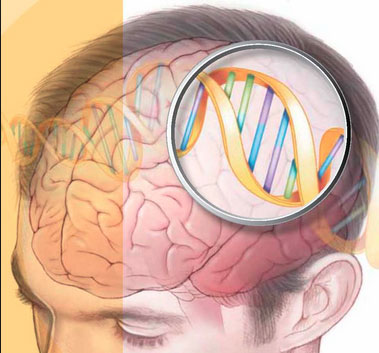Genetic research has a meaningful place in psychiatry, as a major study has just found out. Thomas Insel of the NIMH blogs about the impact of a study on schizophrenia and explains its importance. 108 gene regions, put together, show a significant increase in the risk for the condition, and with 37,000 affected participants and over a hundred thousand controls, this is pretty big. Thank goodness several hundred million dollars have just been donated to psychiatric research.
What is complex about complex disorders? A paper by Kevin Mitchell explains what’s involved in finding the genes that contribute to polygenic disorders like ” schizophrenia, autism, depression, asthma, epilepsy, diabetes, rheumatoid arthritis, hypertension, coronary artery disease, obesity, Crohn’s disease, Alzheimer’s and Parkinson’s disease, multiple sclerosis and probably hundreds of other conditions”. Perhaps some of these will be discovered now that more funding is available!
Is “reductionism” in behavioral genetics a boon or curse? asks if and when reductionism is a bad thing. In behavioral genetics, most scientists are looking for complex genetics behind complex traits, but they need to be careful of how their public statements can be read. The author points out, “There is a difference between methodological reductionism, a tool, and philosophical reductionism, a guiding principle.”
Evan Thompson on core theories of neurophenomenology and time-consciousness opens, “Evan Thompson, one of the authors of 1991′s The Embodied Mind: Cognitive Science and Human Experience, in 2010 authored a sweeping, dare I say even magisterial, account of how science and philosophy should understand consciousness, embodiment, evolution, and neuroscience.” The piece that follows is brief but covers a lot of ground – and makes me interested in reading the book.
An interesting neurological phenomenon is auditory pareidolia – She’s Hearing Voices talks about this symptom that’s common in certain mental disorders and how even ordinary people can be prompted to hear things that aren’t there. In schizophrenia and OCD and certain types of depression and personality disorders, this may be a magnification of what is normally an adaptive trait, IMO.
Shakespeare, Vermeer, and the “Secrets” of Genius takes the almost revolutionary position that practice does not necessarily make perfect – sometimes you have to be born with talent.
Most of Us Still Don’t Get It: Addiction Is a Learning Disorder questions the idea that we have genes or areas in our brain that predispose us to certain addictions. I read it and thought that perhaps all addiction could be characterized as a salience disorder, because it takes the position that it’s a maladaptive state of a survival trait. Just read.

